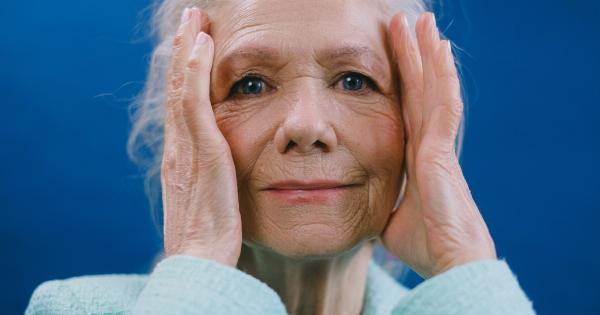Hypertension is a common condition among the aging population, but it is often viewed as a negative aspect of aging. However, hypertension can actually provide certain benefits to the aging population if it is managed properly.
Through lifestyle changes and medication management, individuals with hypertension can improve their overall health and reduce the risk of serious health complications.
The Benefits of Hypertension
While hypertension is a condition that requires monitoring and management, it can also provide certain benefits to the aging population. These benefits include:.
- Reduced Risk of Cognitive Decline: Studies have shown that hypertension in midlife can actually help reduce the risk of developing dementia later in life. This is because hypertension increases blood flow to the brain, which can help preserve cognitive function.
- Reduced Risk of Osteoporosis: Individuals with hypertension often have higher bone density than their counterparts without hypertension. This can help reduce the risk of osteoporosis and fractures in the aging population.
- Reduced Risk of Depression: Hypertension has been shown to reduce the risk of depression among older adults. This may be due in part to the fact that hypertension requires individuals to monitor and manage their health, which can provide a sense of control and purpose.
- Improved Cardiovascular Function: While hypertension is often associated with cardiovascular problems, it can actually help improve cardiovascular function in the aging population. This is because hypertension forces the heart to work harder, which can help strengthen the cardiovascular system.
Managing Hypertension in the Aging Population
While hypertension can provide certain benefits to the aging population, it is important to manage the condition properly to avoid serious health complications.
The following lifestyle changes and medication management strategies can help individuals with hypertension improve their overall health:.
Lifestyle Changes
Lifestyle changes are an important component of managing hypertension in the aging population. The following changes can help reduce blood pressure and improve overall health:.
- Exercise: Regular exercise can help lower blood pressure and strengthen the cardiovascular system. Aim for at least 30 minutes of moderate-intensity exercise, such as brisk walking, on most days of the week.
- Diet: A heart-healthy diet can help keep blood pressure in check. Focus on consuming a diet that is rich in fruits, vegetables, whole grains, lean protein, and healthy fats.
- Weight Management: Maintaining a healthy weight can help reduce blood pressure. If you are overweight or obese, aim to lose weight through a combination of diet and exercise.
- Stress Management: Chronic stress can raise blood pressure. Incorporating stress management techniques, such as deep breathing, meditation, or yoga, into your daily routine can help lower blood pressure.
Medication Management
If lifestyle changes alone are not enough to manage hypertension, medication may be necessary. The following medications are commonly prescribed to manage hypertension:.
- Diuretics: These medications help reduce blood pressure by flushing excess fluid and sodium from the body.
- Angiotensin-Converting Enzyme (ACE) Inhibitors: These medications help relax blood vessels, which can lower blood pressure.
- Angiotensin II Receptor Blockers (ARBs): These medications work in a similar way to ACE inhibitors by relaxing blood vessels and lowering blood pressure.
- Calcium Channel Blockers: These medications help relax blood vessels and reduce the heart’s workload, which can lower blood pressure.
Conclusion
While hypertension is often viewed as a negative aspect of aging, it can actually provide certain benefits to the aging population if it is managed properly.
Through lifestyle changes and medication management, individuals with hypertension can improve their overall health and reduce the risk of serious health complications. By staying proactive about their health, individuals with hypertension can enjoy a healthier and more fulfilling life as they age.





























